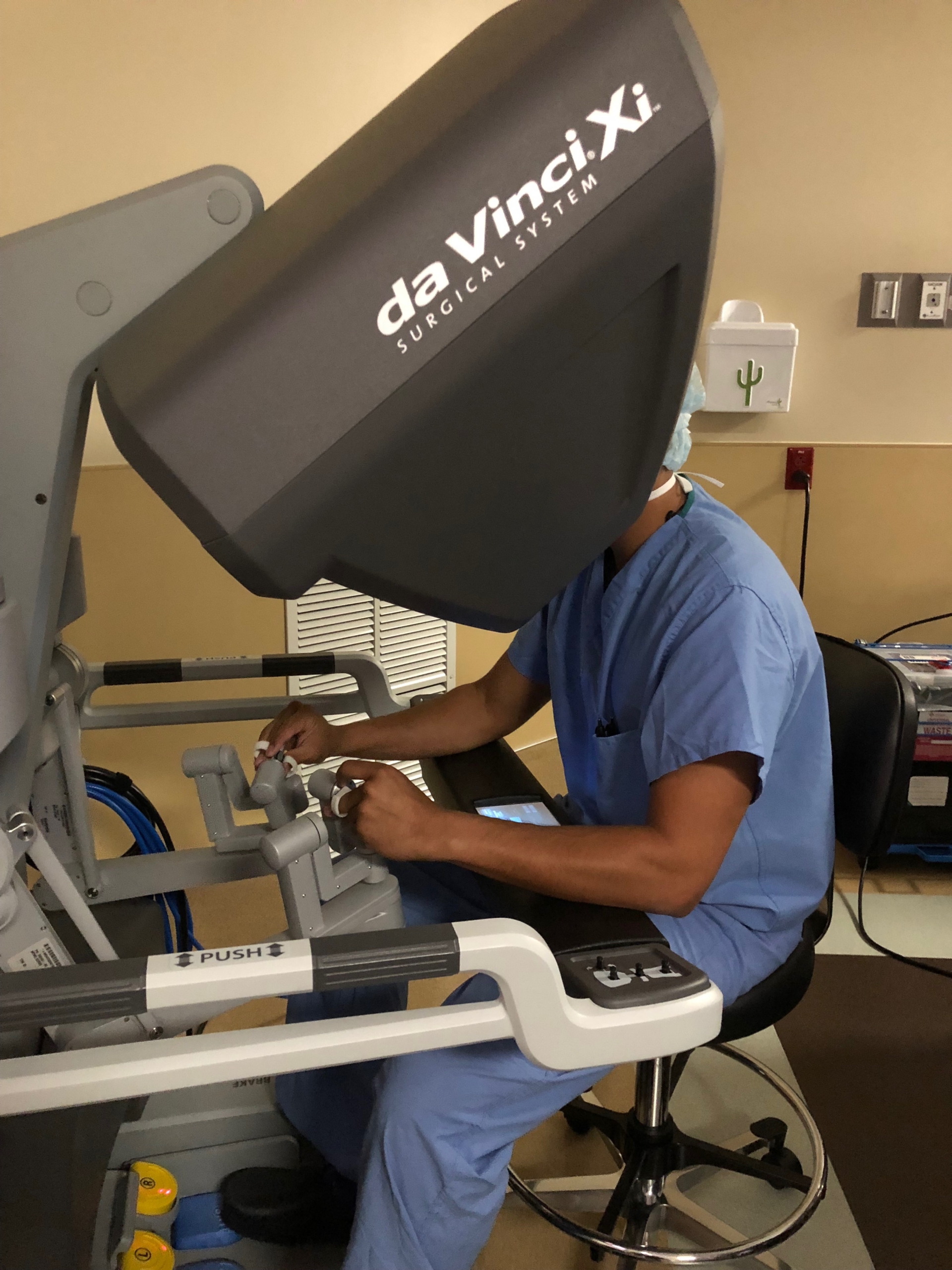 What are the most common colorectal conditions and diseases?
What are the most common colorectal conditions and diseases?- How are colorectal conditions and diseases treated?
- How is traditional colon surgery different from minimally invasive surgery?
- What colorectal conditions can be treated with minimally invasive surgery?
Colorectal conditions are the diseases that impact the colon and the rectum. If you are experiencing more than average bloating, gas, indigestion, or other symptoms, it’s possible that something more serious is going on than a typical upset tummy.
These conditions include colon cancer, polyps, colitis, and Crohn’s disease, among others. Although lifestyle and diet changes can often be helpful to reduce your pain and discomfort, some of these conditions can require surgery to properly treat your symptoms.
Let’s take a closer look at these common colon conditions and the ways that they can be treated. When is minimally invasive surgery a beneficial approach to improve your quality of life?
What Are the Most Common Colorectal Conditions and Diseases?
 To begin understanding common colon conditions, it’s worth mentioning that your colon is divided into segments. Each of these segments can be affected by a variety of issues, and there are even diseases that affect the whole organ. Some of the major colorectal conditions include:
To begin understanding common colon conditions, it’s worth mentioning that your colon is divided into segments. Each of these segments can be affected by a variety of issues, and there are even diseases that affect the whole organ. Some of the major colorectal conditions include:
- Colitis, which is an inflammation of the colon
- Colon polyps, which is a piece of tissue, like a small skin tag, that grows inside the colon
- Colorectal cancer, which can develop from a colon polyp
- Crohn’s disease, an autoimmune illness of the digestive system that causes chronic inflammation
- Irritable bowel syndrome, or IBS, a type of inflammatory illness that causes bloating, cramping, and diarrhea
These colorectal conditions can be treated through medications and sometimes surgery. Minimally invasive surgery is one type of treatment that doctors may prescribe.
How Are Colorectal Conditions and Diseases Treated?
There are medications and therapies that can help treat the symptoms related to an inflamed colon. However, when it comes to cancer, polyps, and other colorectal conditions that these methods can’t resolve, the best course of action may be surgery.
While the thought of major surgery is scary, there are minimally invasive options for a lot of colorectal conditions. For example, robotic colon resections performed in a minimally invasive way are a common treatment for conditions such as colon cancer, diverticulitis, and strictures or masses.
Minimally invasive surgery allows you to treat your disease in a way that causes less damage to the rest of the body than a traditional open surgery. Generally, the benefits of minimally invasive surgery are:
- Less pain
- Less scarring
- Lower risk of infection
- Quicker recovery period
- Reduced blood loss
- Shorter hospital stay
- Smaller incisions
When performing colorectal surgeries, your surgeon will often employ a scope or camera to look at the colon as they perform the surgery. This type of surgery is often called “keyhole surgery” because the incision the surgeon uses is about the size of the keyhole in a door.
Because this “keyhole” is much smaller than a full incision that you might get from traditional open surgery for your colon, the healing process is much quicker. How else are the two types of procedures different?
How Is Traditional Colon Surgery Different from Minimally Invasive Surgery?
 In traditional colon surgeries the incision is often six to 12 inches long. This allows the surgeons to see inside the body and allow enough room for the procedures to occur. It’s a very different procedure from minimally invasive surgery. Instead of one large incision, the surgeons make one or more smaller cuts and use cameras to see inside the body.
In traditional colon surgeries the incision is often six to 12 inches long. This allows the surgeons to see inside the body and allow enough room for the procedures to occur. It’s a very different procedure from minimally invasive surgery. Instead of one large incision, the surgeons make one or more smaller cuts and use cameras to see inside the body.
While the goal of traditional surgery is to repair the damage, minimally invasive surgeries attempt to provide the treatment without harming any unaffected tissues surrounding the illness. That’s why there is less pain upon recovery. Some minimally invasive procedures can be done on an outpatient basis, allowing the patient to go home the same day of their surgery.
It’s true that some procedures will require a more traditional approach in the long run. If you have a skilled surgeon like Chetan J. Patel, MD, FACS, no matter the surgery type, you can trust that they will direct you toward an effective treatment plan to help you get better as soon as possible.
Minimally invasive surgical techniques are the next evolution of care delivery that continue to improve over the years. We can expect advances in technology to keep changing how we perform all surgeries to create better health outcomes and provide patients with better care.
What Colorectal Conditions Can Be Treated with Minimally Invasive Surgery?
Many types of colon conditions can be treated through proper diet and lifestyle management. To ensure that you’re setting yourself up for success and better health, you will want to work directly with your healthcare provider to establish your treatment plan.
When diet and lifestyle isn’t enough to manage your symptoms, minimally invasive surgical techniques can often help. However, your medical history and the condition itself will determine the best treatment, which may be traditional open surgery. Your surgeon will work closely with you to determine the best approaches to get you back to health.
Some of the colorectal conditions that can be treated with minimally invasive surgeries, possibly in addition to other treatments, include:
- Anal and colorectal cancers
- Colon and rectal polyps
- Crohn’s disease
- Diverticulitis
- Fecal incontinence
- Hemorrhoids
- Rectal prolapse
- Ulcerative colitis
Minimally invasive surgeries of the colorectal system can be a game changer for patients. Each year, we refine minimally invasive surgeries to make them less impactful on the surrounding tissue of the body. Increasing use of these techniques make them more refined, even as the technology we use grows more sophisticated.
With that said, you may not qualify for a minimally invasive procedure, or traditional surgery may provide the only option for your care. Minimally invasive surgery isn’t always the best approach, but, when possible, it may be right for your situation. Talk with your doctor about your condition and what is right for you.
